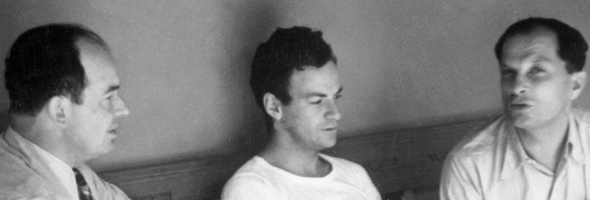A Realistic View of the Way Power Gets Used by Governments
But whatever the technical originality of the idea [Stanislaw] Ulam and [Edward] Teller developed together in February 1951, John Manley concluded, the political effect was electrifying. “Teller and Ulam really won [the argument about building the thermonuclear bomb] by figuring out how to do it… You don’t really want to work on something that you don’t know how to do.” Los Alamos radiochemist George Cowan enlarges shrewdly on Manley’s point: Knowing that it was going to work sure encouraged those people to go ahead and do it. Particularly because now, whether you believed that it was a good idea or …



